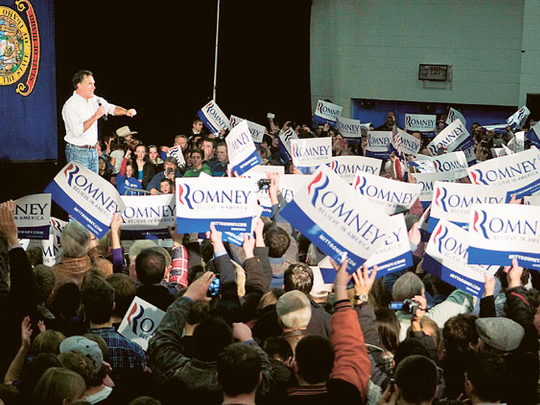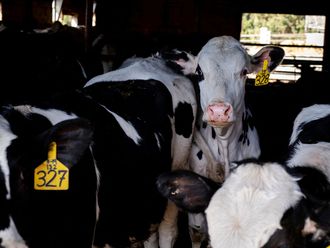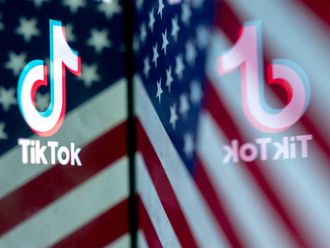
Mesa For years, Nora Castaneda watched her Mormon community grow and grow as it drew converts from a burgeoning Hispanic population in Mesa, Arizona. Then, in 2010, it all went into slow motion.
It turned out the author of Arizona's tough illegal immigration law, then State Senator Russell Pearce, was a Mormon. As word got around, the dark-suited missionaries who'd been having great success in this Phoenix suburb were suddenly having doors slammed in their faces.
"Now we hardly have a baptism," Castaneda said.
The strongest growth for the Church of Jesus Christ of Latter-day Saints in recent years has come overseas, and one of its richest source of recruits in the United States is the Hispanic community.
As Arizona prepares to holds its Republican presidential primary on Tuesday, tensions over immigration within the sizeable Mormon community are bubbling beneath the surface — in a way that could cause discomfort for candidate Mitt Romney, the on-again, off-again frontrunner.
Romney, a Mormon, has said the federal government should drop its legal case against Arizona's hardline law, and that the government should stop providing immigrants with "magnet" services that attract them, as well as enforcing the border. The Arizona Republic newspaper endorsed Romney, but said "his effort to position himself as the ‘toughest' GOP candidate on immigration issues is a concern."
Comfortable lead
A Romney spokeswoman declined to discuss the Mormon church's stance on immigration.
For the moment, Romney's stance appears not to have dented his chances in Arizona — perhaps because his rivals are just as tough. Latest polls give him a comfortable lead in the state. But in a general election it may be a factor.
Mormons are only about 2 per cent of the US population, but they are politically active. Their support helped Romney win the primary in Nevada, a likely swing state in November.
The kind of hard line on immigration espoused by Romney and Pearce is jarring for many adherents of a religion that is growing more international and multicultural by the day.
Despite the popular perception of Mormonism as a white, conservative and uniquely American religion, the church has been changed from within by its own international ambitions.
As recently as the 1970s, the church still denied full privileges to black members, and its growing cadre of global missionaries largely avoided Africa in favour of Latin America.
But when recruits in Brazil began to trace their family histories, a rite of passage in the religion, there was a problem: many new Mormons found black ancestors, raising questions about a long-standing ban on blacks joining the lay priesthood.
Open to all
The Mormon leadership did not know what to do, recalled historian Jan Shipps, a pre-eminent non-Mormon scholar of the religion. So the head of the church in 1978 took his top lieutenants into the temple and waited for a sign from God. Three days later, the church's prophet described his revelation: The priesthood would be open to all men.
Latin America now accounts for 40 per cent of the church's more than 14 million global members, and Hispanics are a small but fast-growing part of US membership as well.
Mesa resident Pablo Felix was 17 when friends sent Spanish-speaking missionaries to his house. His entire Catholic family converted, following his mother's lead.
Felix, now 41, says the Mormon scriptures can have a powerful impact on Hispanics. "They say, ‘this book is about me.' That's what I told my kids — this book is about us, years ago, thousands of years ago. And you know what? It's a beautiful thing," Felix said.
Deportation
It was Pearce's introduction of the Arizona immigration bill, which called on state and local police to routinely check immigration status and pursue deportation aggressively, that forced immigration onto the Mormon community's agenda.
The church has stepped quietly but firmly into the national immigration debate, bucking its reputation for social conservatism by casting immigration as a moral issue rather than one of law and order.












